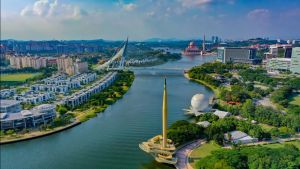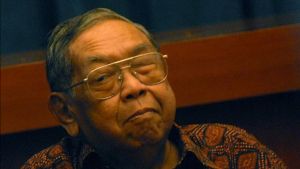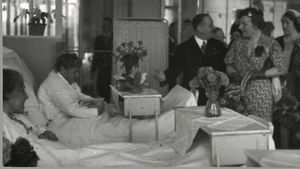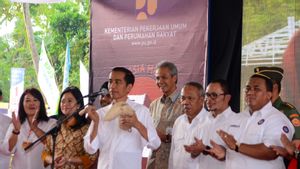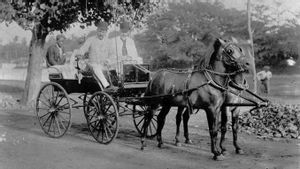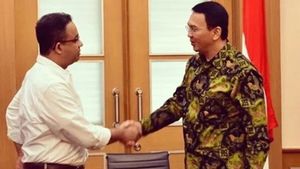JAKARTA - The sweet talk of the Dutch trading partnership (VOC) can be anesthetized by anyone. Local rulers such as Pangeran Jayawikarta are attracted. The Jayakarta ruler felt the profit of giving permission for the Company to build warehouses and settlements in the Netherlands.
Both were then like allies. However, the invaders were still colonialists. His words were unbelievable. The Company changed the warehouse like a fort of defense. Cannons were placed. The Company attacked Jayakarta until it was defeated and turned Jayakarta into Batavia.
The Company was amazed by the advantages of the spice trade in the archipelago. They plan to conquer many areas to monopolize the spice trade. Problems arise. They will not get maximum profit if they do not create European settlements in the archipelago.
The Company has also begun exploring the desire to own a colony. Various places in the archipelago are being explored. Ambon was once chosen to be the center of power of the Company. However, Ambon is not a place of strategy and is far from Asian trade routes.
The Company then looked at Banten. Banten's condition as one of the pepper dealers is the estuary. This condition is supported by the large number of foreign traders who come from China to England. Initially, the Company admired the Banten area quite a bit.
However, the Sultanate of Banten is actually close to Britain. The Company then shifted its gaze to an area near Banten: Jayakarta. The Jayakarta area which became the vasal of the Banten Sultanate was considered the same strategic way.
Jayakarta has become one of the busiest trade centers in the archipelago. Many Chinese, Indian, Malay, and Japanese traders stopped by. The observation was based on the fact that Kompeni had collaborated with the local ruler, Pangeran Jayawikarta from the 1610s.
The cooperation paid off. The Dutch were allowed to build simple warehouses and houses to live on the east bank of the mouth of the Ciliwung River. The warehouse is used for trade purposes and the Company stops.
SEE ALSO:
Prince Jayawikarta was just having fun. He considered the presence of the Dutch to bring benefits to Jayakarta.
In 1610 the Dutch were allowed to build a warehouse and houses made of wood on the east bank of Ciliwung's mouth. When the Dutch ship first docked in Jayakarta, in this city there were three thousand houses, surrounded by green plant fences.
Since this year the Dutch ship has often stopped in Palabuhan Jayakarta to buy vegetables and take clean drinking water. To obtain permission to build a warehouse, the Dutch paid 1,200 reals to Prince Jayawikarta, "said historian Adolf Heuken in the book Historical Places in Jakarta (2007).
The Company made good use of the agreement with Prince Jayawikarta. However, the Company, which began under the control of Jan Pieterszoon Coen, began to think cunningly. The VOC Governor-General has a plan to turn the warehouse into a defense stronghold.
New buildings with walls that protect buildings have begun to be built. The Company has brought in construction personnel from outside Jayakarta. The relationship was interrupted by the Dutch plan to put several cannons into their settlements.
Prince Jayawikarta was furious and tried to ask for an answer. Instead of being immediately angry, Prince Jayawikarta was lulled by the Company's reasons. They reasoned that trading in Jayakarta was massive. The Company argued for the safety they needed cannons.
Prince Jayawikarta is like a buffalo that has his nose matched. The Jayakarta ruler believes in it. Cannons also tried to be fired near the Jayakarta Palace and succeeded. Prince Jayawikarta again asked for confirmation.
They again argued to carry out tests so that they could help Jayakarta when surrounded by enemies. Kompeni's words were swallowed raw. As a result, the Prince of Jayakarta was exposed to the sap. The Dutch in Jayakarta are increasing.
The addition made Coen choose to turn around to attack Jayakarta and succeeded in 1619. This condition is proof that the words of the Dutch colonialists cannot be trusted. Moreover, on the ruins of the destruction of Jayakarta, the Company actually built a new 'imperium': Batavia.
"Jayakarta was burned to the ground, and occupied by the VOC. Coen immediately ordered the construction of a new, larger fort and a small Dutch city, which was built in the following years following the style in ancestral countries, with canals and bridges."
"For a long time Coen refused to give Batavia the name, but on March 4, 1621, the directors of the Company "Hereen Zeventien" strengthened the resolution taken by the Batavia students. With the conquest of Jayakarta and the establishment of Batavia, followed by the blockade over the Banten port managed to control the Java Sea," explained Bernard HM Vlekke in the book Nusantara (2008).
The English, Chinese, Japanese, Arabic, and French versions are automatically generated by the AI. So there may still be inaccuracies in translating, please always see Indonesian as our main language. (system supported by DigitalSiber.id)



